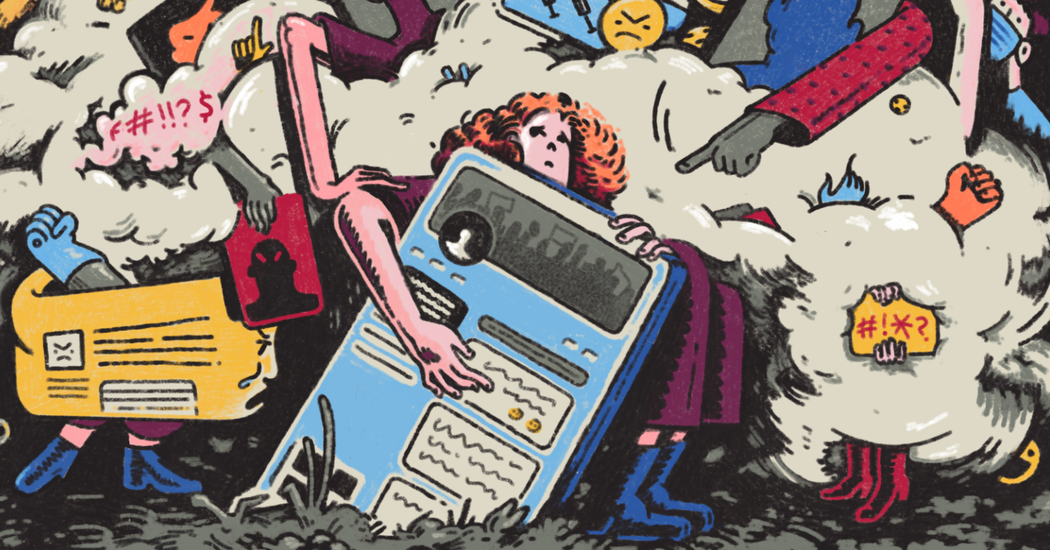
Before he died of COVID-19 in September, Nick Bledsoe was not shy about publicly sharing his opposition to masks and vaccines on Facebook. In April, Bledsoe, an auto mechanic from Opelika, Alabama, added a frame declaring “I don’t care if you’ve had your vaccine” to his profile photo and urged his father not to get the shot.
During the summer, he posted a petition against school mask requirements, cursed President Joe “Biden and his vaccine,” and in his final post, shared a video casting doubt on the safety of vaccination against the coronavirus. Then, with his last words before being placed on a ventilator, Bledsoe agreed to get vaccinated once he recuperated, according to his father. But he never left the hospital, dying at the age of 41 and leaving behind a wife and four children. The day after Bledsoe died, his father started urging those who were unvaccinated to get the shots.
The details of Bledsoe’s death and desperation-fueled change of heart stayed largely confined to his Facebook page. That is, until they appeared in screen-shotted detail the following week on a website that compiles the coronavirus deaths of vocal vaccine opponents.
Almost immediately, strangers began barraging the dead man’s Facebook page with insults and mockery.
“They were making comments that he should have died, that he deserved to die,” said his father, Hal Bledsoe. “It hurt.”
These and many other losses fill a host of websites that claim to be educational, but are fueled by schadenfreude at the deaths of the unvaccinated whose social media posts included Trump memes and conservative conspiracy theories. An exhortation on one such site reads: “Everyone listed on this site helped spread COVID-19 misinformation and then paid the price for their views. Share to stop others from making the same mistake.”
The stories are often remarkably similar: Anti-government memes and posts dismissing the coronavirus or vaccines give way to announcements about feeling sick and testing positive for the virus. Then there are often requests for prayers. Sometimes there are selfies taken while hooked up to breathing machines and fearful updates about imminent intubation. Most end with loved ones sharing RIP posts. Many include links to GoFundMe campaigns created to defray funeral costs.
Among the dead are a father and son, husbands and wives, an Idaho man whose final post was a petition opposing a university vaccine mandate, a nurse who campaigned against masks in schools, and a 50-year-old hospitalized COVID patient who declared: “I’m still not screaming for people to wear their mask or get vaccinated” on Facebook three weeks before he died from the virus. “I say live free,” the man wrote.
While some of the websites’ comments are vicious, other readers have expressed thanks for providing a record of anti-vaccine deaths that have helped them persuade skeptics to get the shots.
The creator of at least one of the sites asks readers “not to cheer” the deaths, but the Facebook profiles of the deceased routinely get bombarded with mockery, a grim legacy their loved ones must contend with even as they mourn.

